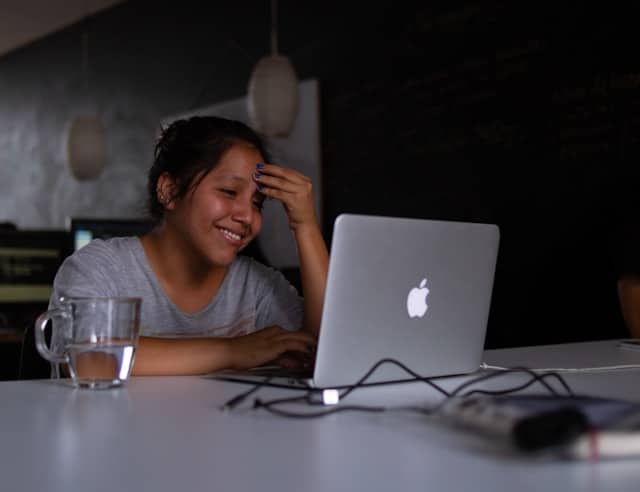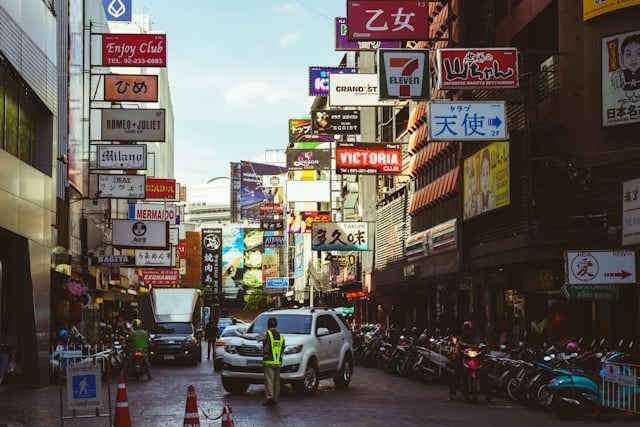
In today’s hyper-connected, globalized world, the rigid boundaries of traditional education are rapidly disintegrating. Students no longer need to choose between intellectual growth and life-enriching experiences abroad. With the expansion of online degree programs, flexible course work, and virtual resources, a new paradigm has emerged: the student traveler.
These ambitious students balance term papers with travel itineraries, seeking to expand both their minds and their outlook through simultaneous learning and exploration.
From keyboarding in Spanish plazas during warm days to conducting research on ecotourism island-hopping across Southeast Asia, students are blending learning and adventure. Yet exciting as this life might sound, it does come with its share of problems. Meeting deadlines, remaining focused, and producing quality academic work amid the temptations and uncertainty of traveling is not an easy endeavor.
Pro Tips for Student Travelers
 Source
Source
So how do students stay interested in learning while living their dream of touring the world? Here’s a step-by-step guide for world-traveling students who are ready to make it happen.
The Appeal and Challenge of the Nomadic Student Lifestyle
The aspiration of studying on the go is closer than ever, with learning platforms like Coursera, edX, and even the conventional universities offering hybrid and fully online degrees. These allow students to continue studying while venturing out into new cultures, learning new languages, and gaining hands-on experience.
But road freedom often competes with course work. Getting a research-based paper written requires structure, focus, and a stable internet—three things you can’t count on when working on train schedules in Eastern Europe or dawn treks in New Zealand. Spontaneity and accountability must coexist, and it starts by building sound habits and routines.
Strategic Planning is Non-Negotiable
Being proactive is perhaps the most critical habit for student travelers. Start each academic semester by creating a timeline of important dates: assignment due dates, exam weeks, group projects, and presentations. Then overlay your travel calendar on top of this academic schedule.
Use a tool like Google Calendar or Notion to organize your commitments and responsibilities. Schedule buffer times on travel-heavy days to give way to possible delays or fatigue. Having weekly lists of tasks and prioritized deliverables can help avoid eleventh-hour scrambles.
It is also a good idea to plan “deep work” days—consecutive time blocks dedicated to complex writing or exam prep. If you will be hiking or doing serious sightseeing for a week, try front-loading the work or creating extensions beforehand.
Develop a Mobile Workspace
 Source
Source
One of the least appreciated things about productive travel-study living is the flexibility to adjust your workspace. Coworking spaces are now sanctuaries for digital nomads, providing quiet space, reliable Wi-Fi, and a sense of routine. Websites such as Workfrom and Croissant can assist in finding good spaces around the world.
Alternatively, identify close-by cafes with decent internet and low noise levels. Most tourist area libraries also offer temporary connectivity. Carry essential items like a travel charger, extension lead, and noise-canceling earphones. A portable laptop stand and ergonomic mouse can help avoid fatigue during long writing sessions.
Having a portable workspace mindset means you’ll be ready to dive into a writing session whether you’re at an airport lounge or a beachfront hostel.
Master Time Management
When your environment changes frequently, sticking to a routine becomes even more important. Adopting a flexible, yet consistent daily schedule is key. Allocate time slots for writing, coursework, sightseeing, rest, and social interaction.
The Pomodoro Technique—25 minutes of focused concentration and then taking a break—can be a lifesaver in maintaining attention. There are programs such as Forest or Focus Booster that send gentle reminders to stay on track.
Remember that time zones can work in your advantage. You might be able to submit assignments ahead of schedule if you’re several hours ahead of your school’s timezone. But always double-check due dates and let professors know where you are and how to reach you.
Know When to Ask for Help
Unexpected setbacks are part of travel: lost bags, food poisoning, blown laptops. When these meet up with schoolwork, it’s worth it to have contingencies. Don’t hesitate to call on professors for deadline flexibility or aid.
In more critical situations, professional academic assistance can be a good safety net. When you’re under pressure or struggling to meet formatting, writing services come to the rescue. It’s a pragmatic solution for students who are saying to themselves, “Someone do my assignment for me, please,” when life on the highway takes a turn. These services allow you to stay academically genuine while keeping pace with deadlines.
Make Use of Offline Tools
 Source
Source
Not all travel destinations have high-speed internet. When traveling to remote or inaccessible areas, plan ahead by downloading reading materials, lecture notes, and related software prior to departure. Google Docs offline mode, Pocket (for reading saved web content), and Evernote can be helpful.
Zotero is a great offline citation manager, and Scrivener provides a great platform for writing longer assignments. Don’t discount the use of good old-fashioned notebooks, either. Having a physical space to brainstorm or outline can help put things together in ways that digital tools sometimes can’t.
Adopt Cultural Insights in Your Writing
Travel can transform your academic work by providing it with first-hand perspectives. You are either a sociology student researching street life in Bangkok or a literature student comparing narrative traditions in Latin America, but your essays can gain new levels of depth and individuality.
Rather than seeing traveling as a diversion, see it as an opportunity to do field research. Take an observation book, tape record interviews, and write down experiences with the local culture. They can be referenced later as qualitative data or rich anecdotes in your writing.
In addition to bettering your scholarship, this will also hone your critical thinking and cultural sensitivity—a set of abilities valued by scholarly and professional alike.
Stay in Touch with Your Scholarly Network
Isolation can be a stealthy productivity killer. Stay engaged with your student community by checking university websites regularly, contributing to discussion boards, and attending virtual office hours.
Many students use messaging platforms like Slack, Discord, or Teams to remain in touch with fellow students, exchange resources, or coordinate group work. Creating these virtual communities can make the experience less isolating and more collaborative.
Having an accountability partner or friend is also inspiring. Schedule weekly check-ins to catch up on goals, obstacles, and achievements—no matter how small they may be.
Health and Well-Being First
The thrill of constant action can mask the toll it takes on your mind and body. Exhaustion, dehydration, and poor nutrition can take a significant toll on focus and memory—both crucial for scholastic performance.
Make daily self-care habits part of your routine: short exercises, healthy food, water, and sleep. Carrying a small fitness kit (resistance tubes, yoga mat) or utilizing apps like 7 Minute Workout can keep you active.
Also important is mental wellness. Journaling, meditation, or even just getting away from screens can recharge focus. Travel-friendly mindfulness resources are available through apps like Headspace, Calm, or Insight Timer.
Get inspired:
Real-Life Stories: Learning on the Go
Consider Chloe, a Toronto-based graduate student studying international relations. Her Southeast Asian semester had her navigating chaotic Bangkok markets, tranquil Laotian riverbanks, and Vietnamese cafes—all while earning a 3.9 GPA. She attributes her success to early morning writing sessions, diligent Trello usage, and the strategic utilization of academic support under duress.
And then there is David from Manchester, a student of environmental science. His thesis on sustainable agriculture was rewritten after field interviews with farmers in Vietnam and Bolivia. His experiential learning not only enriched his thesis but even earned him a research grant upon his return.
Even more inspiring is Leila, a Moroccan business student, who combined part-time coursework with a volunteer experience in rural Kenya. By incorporating her fieldwork into her marketing case studies, she produced outstanding projects that astounded her professors and led to offers of internships.
Final Thoughts
Seeking higher education does not necessarily entail putting your travel aspirations on hold. On the contrary, with thoughtful consideration, studying abroad can enhance both. The travels become a class, and the class extends beyond its confines to each street, museum, mountain, and exchange of conversation overseas.
With proper equipment, planning, and proactive mindset, student travelers can excel academically as well as gain irreplaceable life experiences. With flexibility, wellness focus, and knowing when to seek assistance, students can redefine the global learner.
So pack your books and your passport too. The world awaits, and it’s full of lessons beyond the syllabus.
Please visit:
Our Sponsor
